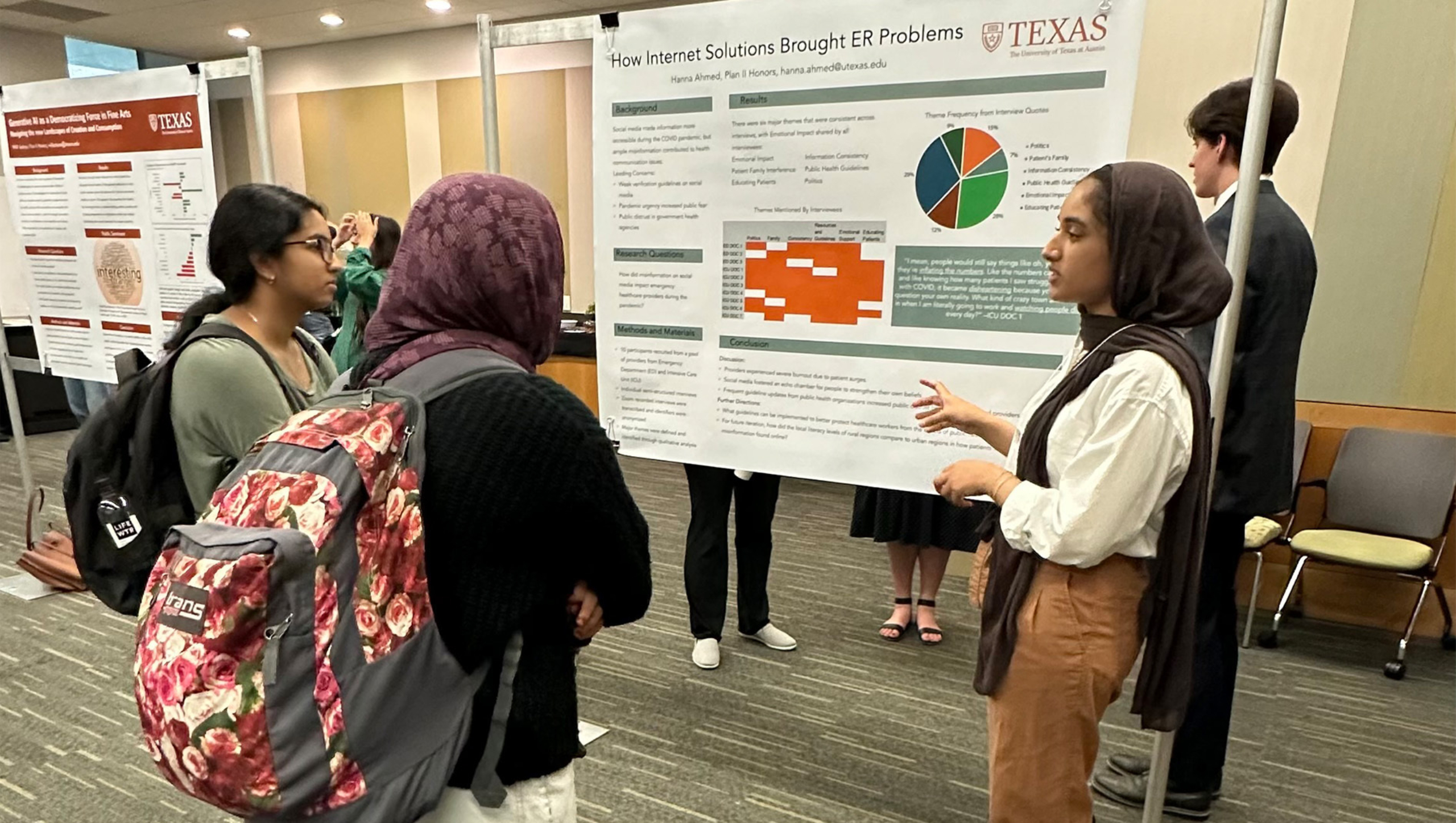Hanna Ahmed is a Plan II senior at The University of Texas at Austin and has interned for Dell Medical School’s communications office since 2022. For her honors thesis, she researched the effects of misinformation on social media during the COVID-19 pandemic. Through interviews with health care professionals, she learned about the severe burnout that came from misinformation online.
In a Q&A with the communications office, Ahmed discusses her thesis and how her work at Dell Med impacted her research.

Hannah Ahmed, far right, presents her research poster during UT’s Plan II research presentation and panel day.
Q&A
What shaped your thesis topic and influenced you to research it?
Social media started to look very different after the COVID-19 pandemic hit. As the real world shut down, and we were sent to social distance in our homes, instead of book reviews, cute cats and vacation photos, I saw more posts about what types of masks I should be wearing. Health officials shared guidelines on social media alongside other outlets. Initially, the world seemed inclined to follow, but as the pandemic progressed, more guidelines were updated, politicians minimized the virus’ severity, and people grew frustrated. “Solutions” with little to no evidence became attractive. How did health miscommunication lead to people taking horse dewormers?
This is what drove my Plan II thesis. As a senior in the Plan II Honors Program at UT, I get the opportunity to take on a research project of my choosing. I wanted to use what I learned about social media reach and content quality as an intern at Dell Med and apply it to the analysis of health misinformation on social media during the COVID-19 pandemic. I interviewed health care providers who worked in the emergency department or intensive care unit during the pandemic to see how misinformation online impacted their work burnout.
Looking back on your work, what stood out?
The providers I interviewed expressed how difficult it was to treat patients in the face of all the overwhelming information online. Patients would come in with their own remedies found online, and providers had to help them understand that what they found did not have enough evidence to be considered beneficial.
The increased distrust between patients and their providers made it difficult to give patients the care they needed. Interviewees expressed how disheartening it was to see patients deny solutions that had proven to be beneficial. This, in addition to the increased hours and lack of resources from the pandemic surge, made health care an even more difficult field to be in at the time.
How did your time as a Dell Med intern support your work?
Working as a social media intern at Dell Med while conducting this research taught me about the importance of sharing accurate and comprehensive information. Social media is a great way to spread public health guidance quickly, but from the pandemic, we saw how dangerous it was when information was shared without evidence. It negatively impacted the patient-physician relationship as users trusted online sources more than their own physicians. Moving forward, we should work toward ways we can target what information is being shared so that we are providing accurate resources rather than inaccurate and potentially dangerous ones.